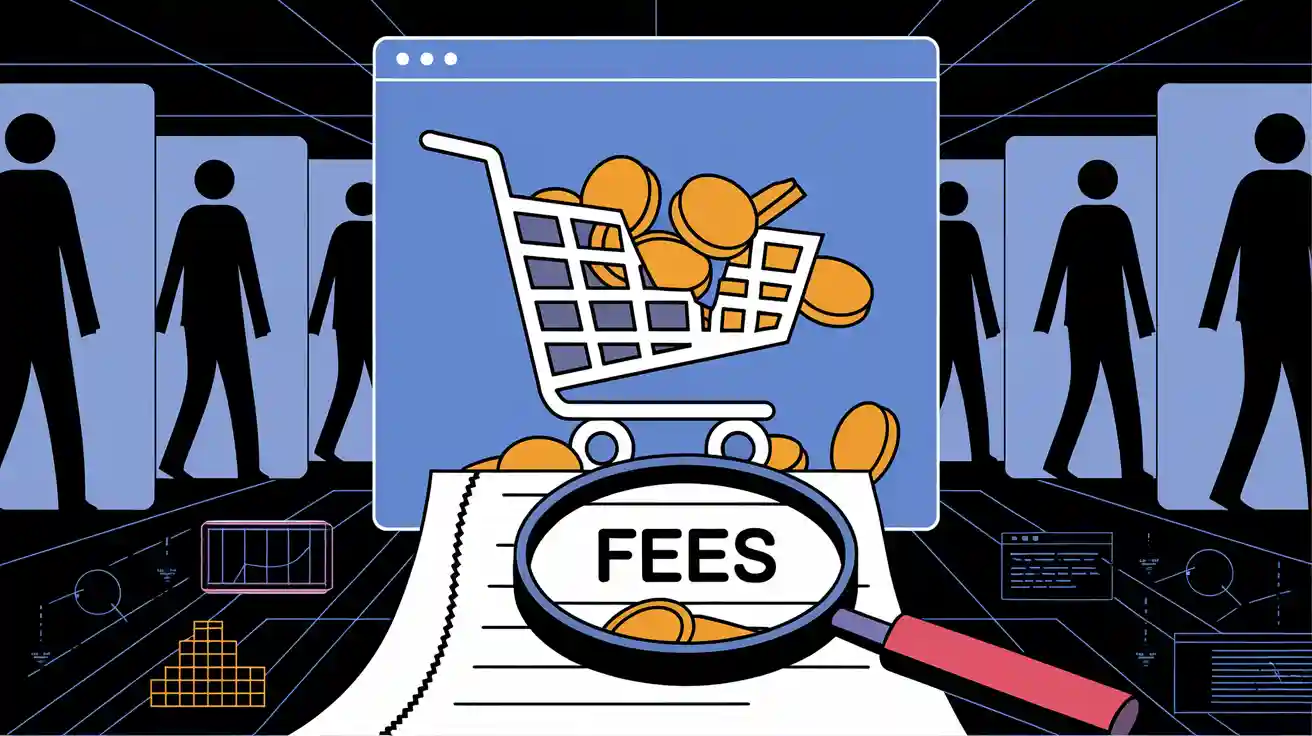Many PayPal Honey users are feeling frustrated lately. Claims of unfair actions have made people feel tricked. Complaints about fake coupon codes and strange link use are common. Some think PayPal cares more about money than honesty. This has caused people to lose trust in the platform. Many users are leaving because they feel unhappy. If you used PayPal Honey to save money, you might question if it was ever honest.
Key Takeaways
PayPal Honey became popular because it promised easy savings and simple tools. Many people started using it.
Claims of tricking users, like showing few coupons or changing links, made people lose trust in it.
Viral posts, like MegaLag’s video, made people angrier and led to lawsuits against PayPal Honey.
To win back trust, PayPal Honey needs to be honest, fix link problems, and work better with influencers and users.
Gaining trust again means explaining how data is used and being fair to users.
The Initial Appeal of PayPal Honey
How the Honey Extension Became Popular
When the Honey extension launched, it became popular fast. People liked how easy it was to use. It spread quickly on Reddit, where users shared how it found discounts easily. This sharing helped it become famous among online shoppers. In just a few years, 900,000 people in Los Angeles were using it. This showed how much people liked it.
Honey used smart ways to become well-known. It made fun videos and pictures to show its benefits. Influencers like Mr. Beast introduced it to millions of people. On the Chrome Web Store, it had great reviews that built trust. PayPal also promoted Honey to its users during busy shopping times. They made sure people saw it as a must-have tool. Good SEO practices kept it easy to find online.
Evidence Type | Description |
|---|---|
Visual Content Marketing | Honey uses fun videos and pictures to explain its features. |
Influencer Collaborations | Working with influencers like Mr. Beast brought in new users. |
Chrome Web Store Optimization | Positive reviews on the Chrome Web Store built user trust. |
Customer Acquisition from PayPal | PayPal promoted Honey during busy shopping seasons to its users. |
SEO Practices | SEO content made the extension easy to find and download. |
The Promise of Easy Savings
Honey attracted users by promising easy savings. It said it could find and apply coupon codes for you. Instead of searching for deals yourself, Honey did it for you. This made it perfect for busy people who wanted to save time and money.
Honey also had features like automatic coupon use and price tracking. These tools made users feel sure they were getting the best deals. By being a trusted source for discounts, Honey earned loyalty from its users. Its ability to save money without extra work made it a favorite for online shoppers.
Allegations of Tricky Practices
Fooling Users with Coupon Codes
You might think PayPal Honey finds the best deals. But some say it doesn’t always show all discounts. Instead, it may work with certain companies to show specific codes. This makes it seem like no better deals are available, even if they are. These actions make users lose trust in the service.
The promise of easy savings feels doubtful when users see this. It tricks people and goes against Honey’s goal of helping shoppers save money. Over time, this behavior makes users question the platform.
Claims of Affiliate Link Tricks
Another big issue is affiliate link swapping. Reports say Honey changes affiliate links to its own. This means influencers or marketers lose their fair earnings.
Honey may replace affiliate cookies at checkout to earn commissions.
It shows unauthorized codes, confusing shoppers and hurting businesses.
Partner-approved coupons are shown first, even if better ones exist.
These actions hurt both businesses and shoppers. Businesses lose money and face pricing problems. Shoppers think they’re saving but might not be. This raises concerns about how honest the platform is.
Worries About Data Use and Money-Making
Data privacy is another problem people talk about. Critics say Honey makes money by taking affiliate earnings and pushing its own deals. A YouTuber, MegaLag, shared how Honey often misses better codes. Instead, it shows its own branded ones. He also said Honey swaps influencer links with its own to get credit for sales.
“Honey often misses better codes or shows its own branded ones. It takes affiliate earnings from influencers by replacing their links.” – MegaLag
These claims make people wonder if their data is used fairly. If a platform cares more about money than honesty, users lose trust. For PayPal Honey, trust is key. Without it, people may start using other services.
The Fallout: Losing Trust and Users
Users Leaving and Numbers Dropping
When people feel tricked, they stop using a service. This is what’s happening with PayPal Honey. Many influencers are upset about its affiliate marketing tricks. They say these tricks hurt their work and earnings. This anger has spread, causing many users to leave.
The numbers show the problem. Honey had over 20 million users before. Now, it only has 16 million users. This big drop shows how hard it is to win back trust. People are now looking for other platforms that are honest and fair.
Evidence Type | Details |
|---|---|
User Backlash | Influencers feel hurt by Honey’s affiliate marketing tricks, leading to anger. |
Declining User Numbers | Honey’s users dropped from over 20 million to 16 million, showing a big loss. |
Viral Videos Showing the Problems
Viral videos have helped expose Honey’s bad practices. One video made people very angry. YouTuber MegaLag made a video called “Exposing the Honey Influencer Scam.” It got over 15 million views. In the video, MegaLag shares years of research. He says Honey replaces influencers’ codes with its own. He calls it “one of the worst marketing scams ever.”
This video didn’t just inform people; it led to legal action. Nine content creators are suing PayPal, Honey’s owner. They say Honey’s tricks cost them money they deserved. The video shows how social media can make companies face their mistakes.
Lawsuits and Public Anger
The problems didn’t end with the video. A group lawsuit was filed against Honey for being dishonest. Both influencers and users are angry, making people look closely at the platform. Many think Honey’s actions show bigger problems in online shopping.
The viral video made these issues even bigger. The lawsuits and anger show people won’t accept unfair behavior anymore. For PayPal Honey, this is a serious time. If they don’t fix things, they could lose even more users.
The Ethical Debate Around PayPal Honey
Is This the Biggest Influencer Scam?
Could PayPal Honey be the biggest influencer scam? Many think so. Honey replaces original affiliate links with its own codes. This stops creators from earning the money they deserve. Influencers depend on these earnings to keep creating content. When Honey changes links, it hurts their income and trust.
This problem isn’t just about influencers. Honey works with retailers in ways that seem unfair. These deals often help Honey more than giving you the best discounts. This breaks the promise of easy savings that made people like Honey. It also makes you wonder if Honey cares more about honesty or profits.
There’s another issue: Honey collects too much user data. This creates big privacy worries. You might not know how much of your data is being used or sold. These actions make users feel taken advantage of, not helped. For many, this behavior makes Honey one of the most debated platforms online.
The Bigger Problem in Online Shopping Ethics
PayPal Honey’s troubles show a bigger problem in online shopping. When companies care more about money than fairness, trust is lost. You expect tools like Honey to save time and money. But tricky actions leave users upset and doubtful. This doesn’t just hurt Honey—it affects all shopping tools.
Creators also face problems. When platforms take their affiliate earnings, creators lose motivation. This weakens the bond between creators and their followers. You might even question if their advice is honest or just for money.
Privacy is another big concern. Honey’s data use sets a bad example. If companies keep using your data unfairly, you might stop trusting them. To fix this, online shopping platforms need to be fair and honest. Only then can they rebuild trust and treat everyone fairly.
Steps PayPal Honey Can Take to Recover
Rebuilding Trust Through Transparency
To win back trust, Honey must be more open. People expect a service to save them money honestly. But recent problems have made users doubt it. Honey should explain how it picks and uses discount codes. Sharing details about its deals with stores and how it earns money would help rebuild trust.
Being clear about data use is also important. Users should know how their data is collected and used. Honey needs a simple privacy policy that explains this clearly. Regular updates and listening to user feedback can show they care about being fair. When a company takes responsibility, people are more likely to trust it again.
Fixing Affiliate Link Problems
Affiliate link issues have upset users and influencers. Honey should stop unfair practices by using better tracking systems. These systems can prevent tricks like cookie-stuffing or changing links without permission.
Problem Type | What Happens |
|---|---|
Malware/Adware | Programs track users and send traffic to affiliates without permission, causing fake commissions. |
Cookie-Stuffing | Cookies are added secretly, letting affiliates claim money for sales they didn’t cause. |
Toolbars and Couponware | Software changes links while browsing, giving credit to the wrong affiliates. |
Fixing these problems will make sure influencers and businesses are treated fairly. Users also want to know they’re getting the best deals without hidden tricks.
Building Better Bonds with Influencers and Users
Influencers and users are key to Honey’s success. Honey should fix relationships by offering fair programs for influencers. Giving influencers proper credit for their work is important. Having support teams for influencers can show Honey cares about fairness.
For users, Honey needs to provide better coupons and discounts. People want a service they can trust to deliver what it promises. Regular updates, surveys, and loyalty rewards can help Honey connect with its users. When users feel valued, they are more likely to stay loyal.
PayPal Honey’s alleged tricks have made people lose trust. Many users have deleted the extension from their devices. A YouTube video by MegaLag, with 16 million views, made things worse. A group lawsuit shows how unhappy users are. To fix this, Honey needs to be honest and fair. Explaining how it works and makes money can help rebuild trust. By focusing on fairness and keeping users happy, Honey might win back its reputation and users.
Evidence Type | Description |
|---|---|
YouTube Video Views | MegaLag’s video got 16 million views exposing unfair actions |
Class Action Lawsuit | Users filed a lawsuit over claims of unfair practices |
User Uninstalls | Millions of users removed the Honey extension due to trust problems |
FAQ
What is PayPal Honey, and how does it work?
PayPal Honey is a tool for finding online discounts. It adds coupon codes at checkout and tracks price changes. Its main purpose is to save you money and time.
Why are users accusing PayPal Honey of deceptive practices?
Some users say Honey puts its own links first. They claim it replaces influencer links and shows certain coupons to earn money. This makes people feel tricked and doubt its honesty.
How does PayPal Honey make money?
Honey makes money through affiliate marketing. When you use its coupons or links, it gets paid by stores. Critics say it sometimes focuses on profits instead of finding the best deals.
Is PayPal Honey safe to use?
Honey collects data to work, but some worry about its use. Check its privacy policy to see what data it collects and shares. If unsure, try other tools with stricter privacy rules.
Can PayPal Honey regain user trust?
Yes, but it needs big changes. Honey should be honest, fix unfair link practices, and rebuild trust with users and influencers. Clear actions and fairness can help it recover.




